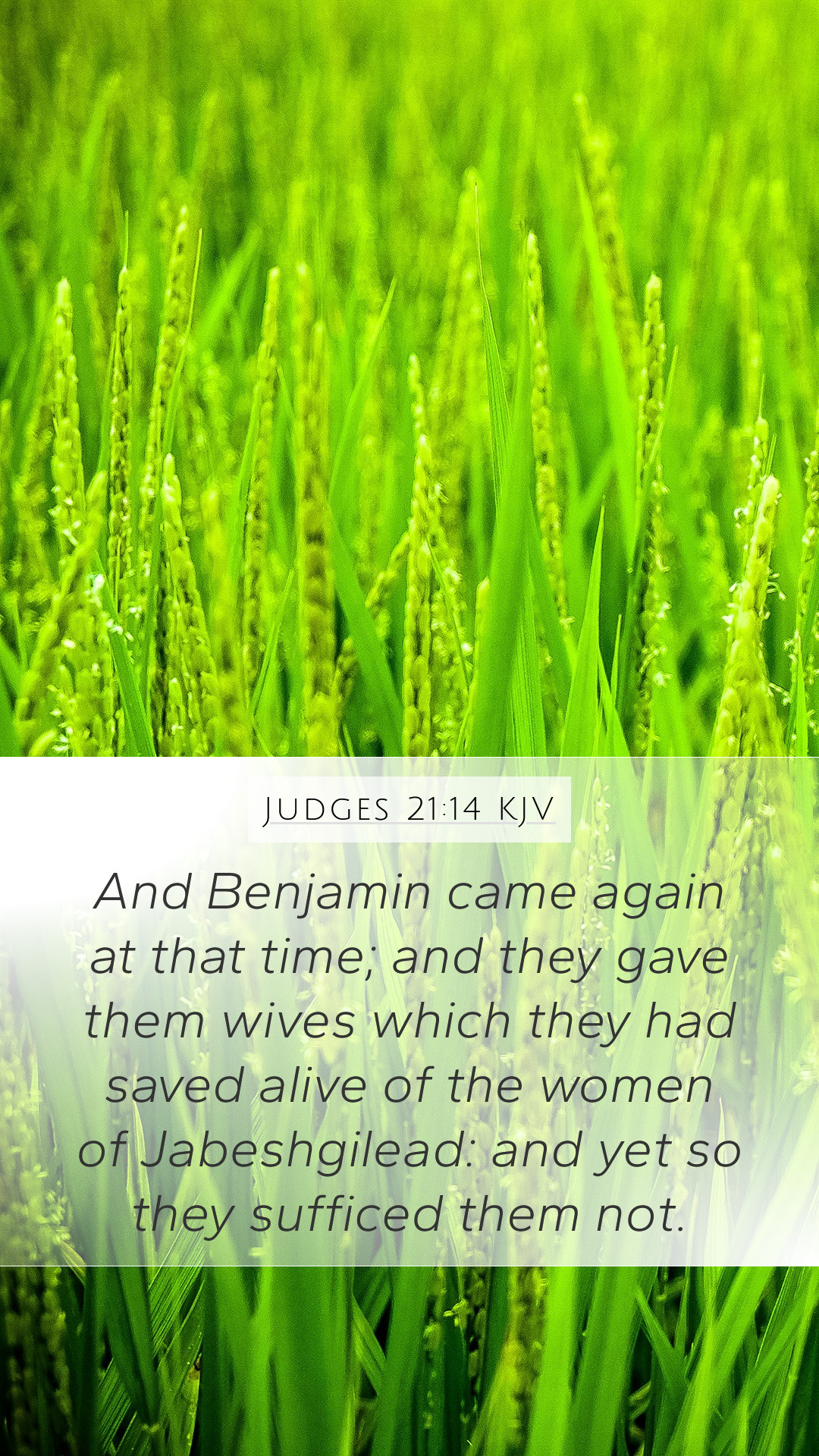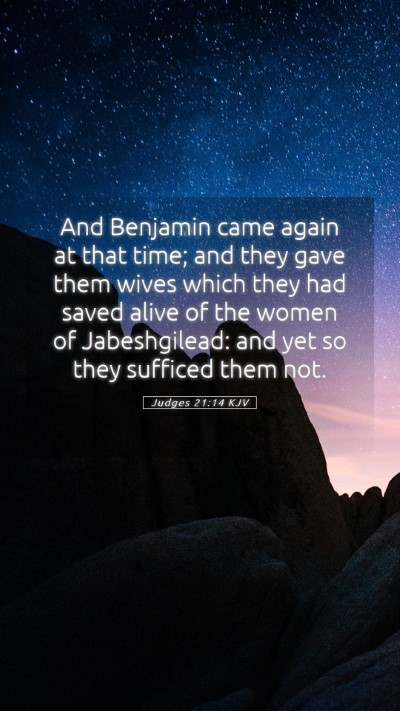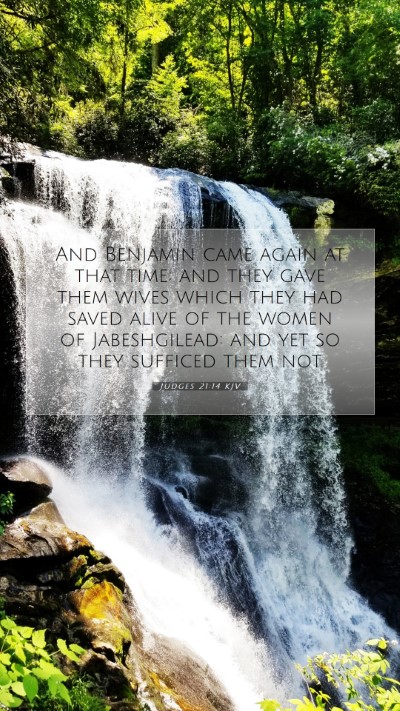Bible Verse Commentary: Judges 21:14
Judges 21:14: "And Benjamin came again at that time; and they gave them wives which they had saved alive of the women of Jabeshgilead: and yet so they sufficed them not."
This passage is a significant and troubling moment in the Book of Judges, encapsulating themes of desperation, sacrifice, and the challenges of adhering to God's laws during a time of moral upheaval. Below, we present a summarized analysis of this verse, drawing insights from renowned public domain commentaries by Matthew Henry, Albert Barnes, and Adam Clarke.
Overall Context
Judges 21 is the concluding chapter of the Book of Judges, a narrative filled with turmoil and moral ambiguity as the Israelites struggled to maintain their identity and covenant with God in a period marked by disobedience and chaos. The tribe of Benjamin had suffered significant losses in a civil conflict, leading them to the brink of extinction.
Analysis and Insights
-
Matthew Henry's Commentary
Henry emphasizes the grim reality of the situation where the people, striving to fulfill their oaths, resorted to giving women to the men of Benjamin from those saved alive in Jabesh-Gilead. He points out the moral compromises made in their effort to preserve a tribe, reflecting a desperate but misguided attempt to align with God's intentions for marriage and kinship.
-
Albert Barnes' Commentary
Barnes interprets this act as indicative of the lawlessness of the time. He argues that while these actions were intended to promote the continuation of the tribe of Benjamin, they nonetheless showcased a lack of adherence to God's original design for marriage, as determined in the creation narrative. This could be understood as an example of failed judgment and the misuse of permissible actions to fulfill dire needs.
-
Adam Clarke's Commentary
Clarke examines the historical context of the events, explaining the rationale behind the Israelites' actions. He notes the previous destruction of the town and the severe oath the Israelites had taken, highlighting the complexities in executing their vow without compromising divine law. Clarke underscores the spiritual lessons drawn from this narrative: that human solutions may often conflict with divine principles, leading the faithful to seek true understanding and wisdom.
Theological Significance
This verse presents sobering insights into the nature of human decisions when faced with crisis. It poses critical questions regarding the extent to which individuals may go to achieve what they perceive as God’s will. The actions taken by the Israelites, while intended to preserve life and lineage, reveal the profound tension between the necessity of survival and the adherence to God’s commands.
Moral Application
For modern readers seeking Bible verse meanings and interpretations, this passage encourages reflection on the ethical implications of our choices. It invites examination of how we navigate moral dilemmas in our daily lives and challenges us to ensure that our actions align with God's principles, despite the pressures and challenges we face.
Cross References
- Deuteronomy 7:3-4: Prohibitions against intermarriage with pagans.
- 1 Samuel 11:1-2: The events leading to the conflict involving Jabesh-Gilead.
- Judges 21:1-3: The oath taken by Israelites regarding the war with Benjamin.
Conclusion
In summary, Judges 21:14 serves as a profound lesson on the human condition, shedding light on the tension between cultural norms and divine commandments. The combined insights from prominent commentaries highlight the need for Bible study insights and biblical exegesis, guiding believers in their Bible study groups or online Bible study endeavors.
As readers seek understanding Scripture, they are encouraged to immerse themselves in the historical context and ethical applications of the verses, embracing the complexities and richness of biblical narratives.


